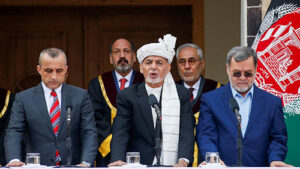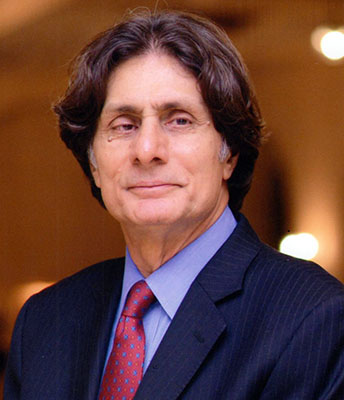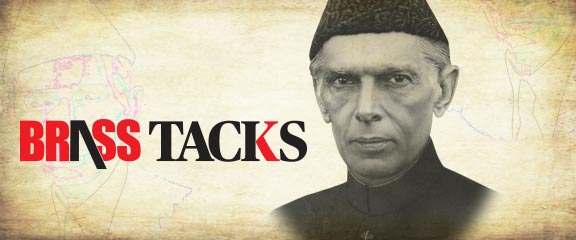“Whatever countries I conquer in the world, I would never forget your beautiful gardens. When I remember the summits of your mountains, I forget the greatness of the Delhi throne.”
Ahmad Shah Durrani
Afghanistan has been engulfed in the flames of war for over four decades. The US’ earlier decision to withdraw its troops in May, and then recently its announcement regarding extending the date of the withdrawal of its troops from the region have spurred an intense debate about the prospects for peace in the country.
It was more than 20 years ago when US troops landed in Afghanistan for what was then perceived to be a short and crisp operation to decimate the Taliban. For a while it appeared to be a possible ambition. But, fast forward to February 2020, and one witnessed the old adversaries, the US and the Taliban, sitting together to sign an agreement which, while guaranteeing that Afghan soil would not be used for any terrorist activity against the US and its allies, stated that the US would immediately begin to reduce the number of its troops in Afghanistan, completing the withdrawal by May 1, 2021.

Much has happened since then, including the change of administration in the US. With the induction of President Biden, coupled with a lack of progress in the Intra-Afghan dialogue, it was speculated that the agreement with the Taliban could either be scrapped altogether, or its implementation would be made conditional to substantive progress in the Intra-Afghan talks. Though pressure on the Taliban for a cessation of hostilities has increased, the agreement has remained intact and any major disruption of plans notwithstanding, the promised withdrawal will now begin on May 1, to be completed by September 11. However, the Taliban have publicly expressed their disapproval of the delay, even threatening to begin attacking US and NATO troops again.
The principal reason which has contributed to the lack of progress in the Intra-Afghan talks has been the myriad differences among the stakeholders and a reluctance to show flexibility to reach an agreement. Both sides, one which has to either relinquish authority or at least share it with others, and the other which is likely to gain a foothold in the corridors of power with the likelihood of a complete take-over, have shown a high degree of intransigence in addressing the outstanding issues. Months were wasted in Doha with no progress. When the talks venue was shifted to Istanbul, the Taliban refused to attend, which could either be because of the US decision to delay the withdrawal of troops, or the inclusion of some other stakeholders in the parleys. Consequently, the talks had to be postponed with no new date announced yet.
There are fears on both sides which plague the prospect of a peaceful reconciliation among the warring groups. In spite of the presence of US troops, the Afghan government has been losing control over increasing swathes of its territory, some of which have effectively fallen under Taliban control. It is feared that in the event of a complete US withdrawal, which is now on the cards, the Taliban will move quickly to take full control of Afghanistan.
This prospect is not altogether unfathomable as it complements the fundamental stance of the Taliban that, in spite of the foreign invasion, they have remained the de jure government in Afghanistan. They believe their de facto status will be revived, and that it will only be a step away once the US troops are gone. So, for the Taliban, a take-over of Afghanistan by force would be construed as within their legitimate purview to re-establish their government, which was dismantled through a foreign invasion led by the US. Self-serving it may be, but the argument may not be without a fair share of logic. The US invasion is an undeniable reality, and the Taliban government was removed by the use of brutal force which they never accepted. Ever since then, they have been fighting to revive their rule. Tantalisingly close to their moment of triumph, the Taliban will celebrate just like they have always celebrated that other victory against the former Soviet Union.

The prospects of a negotiated settlement in Afghanistan have been receding in the recent past. And since Doha yielded no tangible results and the Istanbul process failed to take off, the pressure on Pakistan has grown to force the Taliban not only to the negotiation table, but also to make substantive concessions. This is an immensely daunting task because all the cards are effectively in the hands of the militants. It is only time which now stands between them and their ultimate victory, which they have undeniably fought for under difficult circumstances, given that the world did not give them even a shred of a chance.
But a Taliban take-over is no guarantee that peace would ensue. As a matter of fact, this could signal the advent of a fresh wave of hostilities. The former Northern Alliance may not be intact, but the thinking that bred it in the past has survived. There are ongoing efforts inside Afghanistan to piece together a private militia to wage war, post the US withdrawal, in a Taliban-dominated Afghanistan. But substantive strategic shifts have occurred in the last two decades with virtually all countries of the region, including China, Pakistan, Russia, Iran, Turkey and the Central-Asian Republics, supporting the process of a negotiated settlement in Afghanistan. Under the changed circumstances, India could be the lone miscreant promoting a continuation of strife in the war-weary country.
But a key factor that may further propel the war is the person of President Ghani and his coterie of colleagues. He has been the principal impediment in the path of reconciliation so far. His insatiable infatuation with holding on to the strings of power has frustrated the process of dialogue and there is no certainty that he may think any differently in the future. As a matter of fact, his venomous antipathy towards Pakistan, which he expresses with abandon, may force him to adopt the path of war and prolong the miseries of the Afghan people. In this effort, he will certainly have the full support of India which would not let an opportunity slip by to destabilise Pakistan by using Afghan soil across a long and difficult border between the two neighbours. This has happened in the past and it remains a challenge for Pakistan to address.
The respective positions of the Taliban and the Afghan government remain poles apart. While President Ghani wants a ceasefire to precede the holding of further talks followed by elections after a substantial period of time for the Taliban to have a share in the government, the latter remain unwilling to forfeit their option of the use of violence and consider ruling Afghanistan as their inherent and legitimate right. So, it is not just a slice of power that the Taliban may be seeking. It is the whole country which they lay a claim on ruling. Given the ground realities which may slant further in their favour once the US troops are withdrawn, and notwithstanding the local militia that may have been raised by then, there is little resistance they are likely to encounter for a take-over of Kabul. Some disturbance may survive on the fringes, but that would be of little worry for a possible Taliban-dominated/Taliban government.
There is speculation that the Taliban have actually ‘changed’ and, if they come to power, they may not want to relive the gory images of their past rule replete with the instances of stoning and beheading of people. This is a hypothesis based on the varied experience gained by people through broad interactions with the Taliban. This may be true to a certain extent, but the thrust of their rule will likely remain unaltered. Having assimilated a degree of finesse which may have been put on display during the parleys they have participated in, the mindset is likely to have remained un-impacted, thus nullifying the possibility of any real change. In effect, such a change, if at all, may be limited to optics alone. In the end, we, and the Afghan people may again have to relive a government of the past laced with all its essential accompaniments.
Afghanistan hovers between these two mindsets: the one insisting on a negotiated settlement exclusively on its terms, and the other asserting both its de jure and de facto legitimacy to rule the country. It is a clash of egos and it is also a clash of brute power and resilience. Against this backdrop, the war may rage into the future and the people of Afghanistan may continue to bear the horrific fallout of this brutal conflict.

The writer is a Special Assitant to the Prime Minister on Information.



